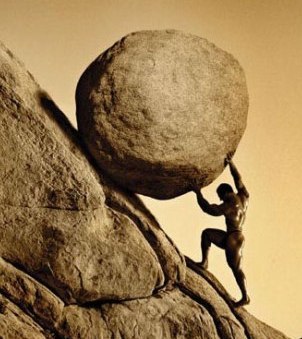 As Tim began his first meditation retreat, he began to notice a contraction in his heart that pained and frightened him. His old fear that his heart could just stop was happening, and his panic was rising. His teacher had told him to simply notice sensations and feelings, so he tried to just sit with what was happening. Tim had respect for the teachings, so he followed the instructions, even as his experience of panic and pain grew larger. “What is wrong with me that I can’t do this simple thing?” he thought. He began to attack himself internally, blaming himself for his overwhelming emotions and his failure as a meditation student. He also became frightened that everyone in the meditation hall could see what was happening to him, and were judging him. Eventually the feelings became so overwhelming that he ran out of the retreat center. Tim’s experience is not uncommon. Many meditators have suffered trauma, often more than they are consciously aware of. While meditation can be an important way to work with physical, mental, and emotional states, including trauma, it needs to be approached with skill and care. Trauma in Meditation Traumatic experiences are more likely to emerge in meditation than in everyday life because we don’t have our ususal ways to distract ourselves. Anyone who experiences overwhelming feelings, physical pains, or repetitive attacking thoughts during meditation may be having a version of PTSD. This can happen to people who don’t think of themselves as having trauma in their lives. Other signs of trauma that can show up in meditation are insomnia, anxiety, depression, and physical pains or problems of a vague or unexplained nature. A Team Approach There are ways to work with traumatic states that arise in meditation, but skill and care is required. It’s best for the practitioner to work with a meditation teacher with awareness, training, and experience in working with arising trauma. Many traditional teachers and practices don’t take emotional states into account. However a growing number of contemporary teachers also have training in psychology and can help a student to navigate these difficult waters. It is also best for the practitioner to have a therapist skilled in working at the interface of meditation and trauma. She or he will likely need a safe place, in addition to the meditation center, to talk about difficult things that have come up in life, and to develop skills to notice and respond to traumatic states as they arise. Meditation alone is unlikely to resolve trauma. Meditating at the Edge of Trauma For people who are feeling overwhelmed by their thoughts or feelings, seated meditation isn’t the best practice. Try walking meditation, or doing a simple activity such as washing dishes. If what’s happening in your meditation is too much, change it up. Go into nature and touch the earth. To begin to use difficult states as a path of self-discovery and healing, have the support of a skilled teacher or therapist. The trauma researcher Peter Levine says that titrating painful states is key. It is important to be able to move back and forth between an experience of safety, such as a pleasant or neutral sensation in the body, and allowing for the edge of the traumatic sensation. As the trauma state gets more intense, move back to the felt sense of safety. This oscillation will, over time, allow for the distressing state to be held alongside and within a sense of safety and connection. Indeed trauma can be used as a fuel for radical self-discovery and healing. However the path is long and intense, and must be navigated with compassion, skill, and care by all involved.
3 Comments
Hi Megan - This is such an important piece of the meditation teaching experience. Many teachers don't know how to handle this sort of thing and it's wonderful that you can add to an increasing awareness. In addition to the meditation community you're building, do you ever consider convening a series on this and other topics for teachers of meditation? What a rich array of learning and experience you will bring to others' instruction...
Reply
Megan Rundel
5/8/2018 11:25:35 am
Hi Emily, I'm really interested in teaching about this. Plans are in the works! I hope to offer more soon.
Reply
5/10/2018 10:38:56 am
Hi Megan---
Reply
Leave a Reply. |
Details
AuthorMegan Rundel is the resident teacher at the Crimson Gate Meditation Community in Oakland, CA.. Archives
April 2020
Categories
|

 RSS Feed
RSS Feed